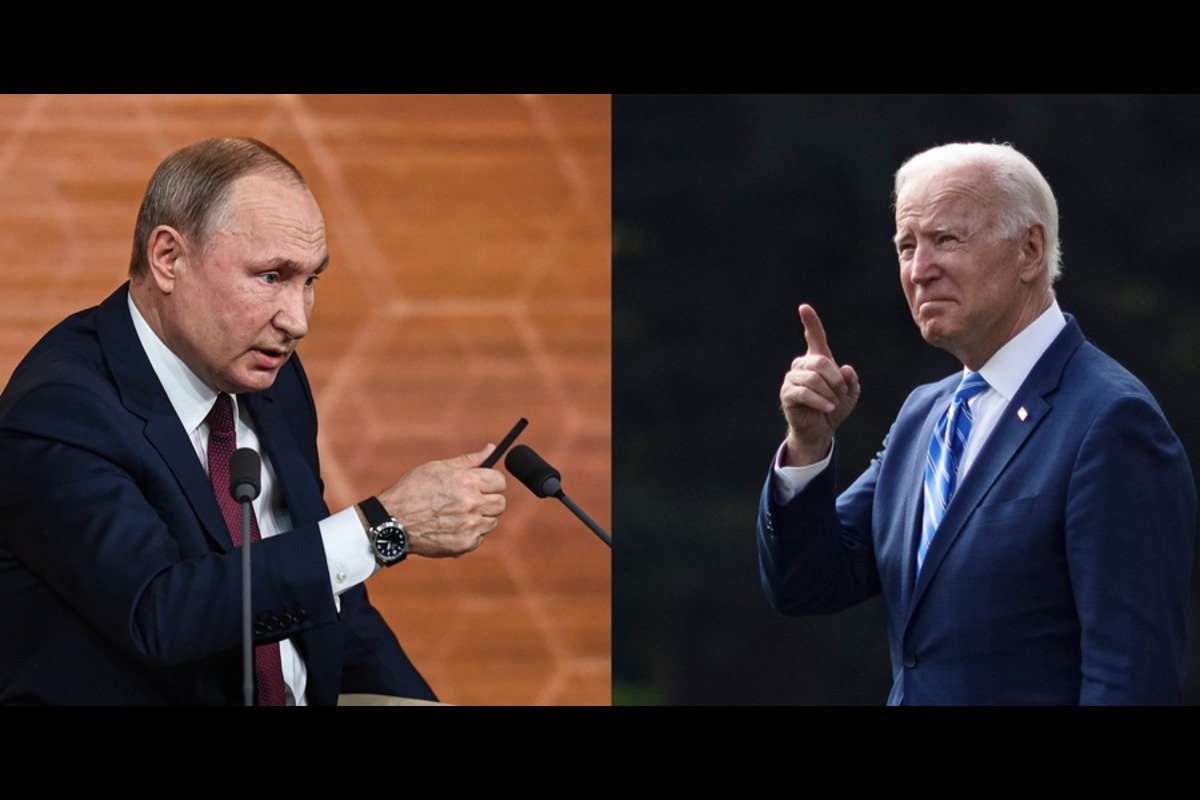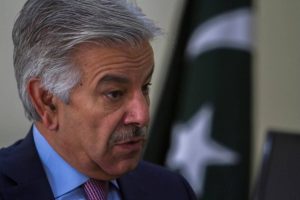The New Year begins with a glimmer of hope of the Russian invasion of Ukraine ending in 2024, as the Cold War rivals, Russia and the US, go for general elections for the presidency and the House of Congress as the voting process may result in a temporary truce.
While the US bets on a Biden-Trump rematch with both sides pulling equal muscle, Putin needs a reconfirmation of his presidency to pull weight with the Russian military and the people, a section of which is getting war-weary and Putin bets on Trump’s return to White House to boost his sagging international image.
US President Joe Biden battles his own downward ratings and an assault on Bidenomics which has however ended on a cheerful note for America with inflation down, job rates up and stock markets on the ascendancy as his arch rival ex-President Donald Trump is beleaguered with a mountain of legal woes despite being chin up with his frontline status as the GOP’s favourite nominee. He faces nine counts of felony charges on conspiracy and election subversion.
Vladimir Putin fights domestic pressure to withdraw from Ukraine as it has cost the Russian economy dear with US sanctions and a ban on export of its raw materials to the world and the military’s fatigue in fighting a war with a former Soviet colony in which it’s not interested in.
Putin seeks re-election in this background and would be betting on Trump’s return to the helm to counter US foreign policy and lifting of US and allies’ sanctions, media reports said.
Putin’s confirmation that he would run again for President in 2024 was predictable but could there be any surprises next year in the war he started in Ukraine? Political strategists in the US are asking this question as America itself is going for re-electing the US President and the 435-member House of Representatives where Republicans hold a razor-thin majority. Republicans might lose this majority and even the House seems a distinct possibility as Democrats put abortion rights on the ballot.
Republicans lost Ohio, Kentucky and Virginia in the off-year elections as abortion rights dominated the elections. While there is an outside chance to win the presidency with Trump, the House seems a goner for the Republicans giving Democrats control over both Houses.
Russians go to the polls from March 15, less than a month after the full-scale invasion marks its second anniversary. Both sides (Ukraine and Russia) seem resigned to a long conflict, with the high numbers of casualties, equipment losses and economic damage since it started on February 24, 2022, set to escalate, reports said.
Putin and his Ukrainian counterpart, Volodymr Zelensky maintain maximalist goals that preclude talks to end the war imminently and experts have told Newsweek the fighting is likely to continue into 2025.
Outlier events cannot be ruled out, such as the brazen challenge to Putin’s authority by Wagner Chief Yevgeny Prigozhin, whose death in a plane crash followed his seizure of military facilities in Rostov-on-Don and a march on Moscow. Also, the Kremlin has repeatedly dismissed rumours about Putin’s health.
“The only way I can foresee the Ukraine war possibly ending in 2024 is if Vladimir Putin dies,” Beth Knobel, professor of communications and media studies at Fordham University, and former CBS News Moscow bureau chief, told Newsweek.
Rumours abound in Moscow that Putin is stricken with cancer and his public appearances have become more rare and that he operates in isolation from a mountain resort from the outskirts of Kremlin.
“It is theoretically possible that Russia could take advantage of a change in leadership to try to declare victory and just hold onto the land it grabbed since February of 2022,” she said.
“But even if Putin dies, I think there’s only a miniscule chance that Russia would back off from the war, because it has already invested so much of its national image in winning.”
A widely anticipated Ukrainian counter-offensive that started in June aimed at recapturing Russian-occupied territory, has not made the progress Kiev’s allies wanted.
Ukraine’s Commander-in-Chief Valerii Zaluzhnyi’s assessment that fighting had entered a “stalemate” was rejected by Zelensky amid rumours of a split between the country’s most prominent figures, and reports of a reshuffle of top brass in the New Year.
Ukraine faces a crisis of confidence in the US as Congressmen accuse Zelensky’s government of corruption and that the US aid is being siphoned off by oligarchs and bureaucrats, politicians and the military top brass, all of which Zelensky vehemently denies asking for $61 billion in aid now stuck in Congress. US allies want the funding to continue as any Russian victory would encourage Russia to relook former Soviet territories in Central Asia and East European countries. Thus, resuming the Cold War all over again.
“With the stalled counter-offensive, there is widespread pessimism about Ukraine’s chances to defeat Russia and regain the occupied territories,” Peter Rutland, professor of Russian, East European and Eurasian Studies at Wesleyan University, in Middletown, Connecticut, told Newsweek.
“However, that does not mean that there are likely to be serious peace talks and a possible end to the war in 2024.
“Russia’s goals are not confined to holding the occupied territories — they want to see a compliant political regime installed in Kiev, and they still believe this is possible. At the very least, Putin is going to wait until the November 2024 election, to see if Donald Trump returns.”
Former US President Donald Trump and Vladimir Putin last met at the G20 Osaka Summit 2019, in Osaka, Japan, on June 28, 2019. Trump has called for an end to continued US funding for Kiev to fight Putin’s aggression.
Trump and the GOP: The Republican primary frontrunner has been announced by Kremlin propagandists as Moscow’s favoured White House resident-in-waiting, not just because of his railing against Congressional support for Ukraine. Trump also described Putin as “very smart” following the full-scale invasion and has rejected US intelligence assessments that Putin had interferred on his behalf in the 2016 election.
“The US will pull the plug on Ukraine under another Trump administration, pure and simple,” said Chris Dolan, professor of political science at Lebanon Valley College, who has written about US support for Ukraine and NATO.
“But I think Joe Biden will manage this relatively well. The current struggle in Congress over foreign aid, I think, will be settled but perhaps not super soon. This is more about domestic politics and electoral pressures.”
Zelensky’s visit to Washington, D.C., on December 12, was lower key than the red-carpet treatment he previously received. Instead of the $61 billion, all he got was a renewed pledge by President Biden and a $200 million chunk of military assistance for air-defence interceptors, artillery and ammunition.
But Congressional Republicans want Ukrainian aid to be tied to sweeping immigration reform. The Israel-Hamas war that started on October 7 is competing for attention as well.
“Additional aid and weapons deliveries to Ukraine will be disrupted with the ongoing conflict in the Middle East and the US about to enter an election year,” said Isil Akbulut Gok, associate professor at the Department of Government at Sacred Heart University, Fairfield, Connecticut.
Mert Kartal, an associate professor of government at St. Lawrence University, Canton, New York, believes Biden could try to bolster military support for Ukraine in spring 2024, leveraging a Ukrainian victory as part of his presidential campaign.
“At the very least, he would take the necessary steps to prevent Ukraine’s defeat before the first week of November 2024. However, persuading the members of the Republican Party, increasingly doubtful about the likelihood of Putin’s defeat, will pose a significant challenge,” he told Newsweek.
But as GOP lawmakers fight for immigration reform, particularly on the US southern border, ahead of financial support for Ukraine, “it would not be unreasonable to expect Biden to, at the very least, attempt to extend the conflict into 2025.”





